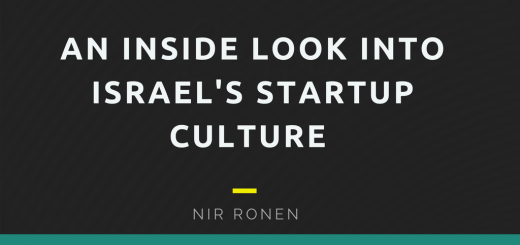The Biggest Startup Myths
What do you think of when you hear the word startup? Is it a small tech company run by millennials? Does it involve a rags to riches story of building the company from the ground-up out of someone’s garage into a multi-million-dollar enterprise? Are all startups clustered in Silicon Valley and only open to tech wizards? Is the company disorganized and corrupt, paying its employees as little as possible in order to get by? Unfortunately, there are a lot of stereotypes associated with startups, many of them negative, that are simply untrue.
Startup is a broad category that can be used to describe not just one type of company, but many. I founded my own startup company, qSpark, a provider of ultra low latency platforms for automated trading. But the business model of my company, because quantitative trading is such a niche industry, would be very different than say, an app developer’s. Truthfully, “startup” is a subjective term that really only signifies a newly-established company designed to have rapid, large-scale growth (rather than being limited to a single geographic area). Technically, most companies grow out of the startup phase after a few years of becoming more established, although some entrepreneurs argue that “startup” delineates a certain culture or atmosphere, not a phase of development, and companies don’t grow out of it.
However you like to think of a “startup,” know the difference between myth and reality. Here are a few common myths associated with startups and the truths to bust them.
- Myth: Startups are just smaller versions of larger companies
- Reality: Startups are fully-formed businesses, but they cannot be grouped into the same category as corporations. They are formed to solve a problem or fill a need, and they have their own set of behaviors and characteristics. According to Franck Nouyrigat, the cofounder of Startup Weekend, “Startups are about searching for business models, while large corporations are about surviving as leaders.”
- Myth: All startups evolve from original ideas and new technology
- Reality: Not all startups are formed from brand new ideas or inventions, and they don’t necessarily rely upon new technologies either. “It isn’t about being the first startup with the idea, it’s about doing it better and providing more value,” explains Kate Harvey for the blog Chargify. Many very successful startups, such as Facebook and Google, have succeeded with ideas that were not new- they just did it better than anyone else. Additionally, customers are more likely to embrace the familiar as opposed to a brand new technology. “Early adopters love new technologies, but mass market customers want solutions, not technology,” says angel investor, Martin Zwilling for Entrepreneur. Entrepreneurs need more than just an innovative idea to have a successful startup; they need a solid business model as well. Ideas alone are not enough to launch your business.
- Myth: Startups fail because they lack proper funding
- Reality: The biggest mistake a startup can make is to give up before they’ve stuck it out and allowed their business to develop. As Noam Wasserman, author of The Founder’s Dilemmas, writes, 65% of VC-backed startups fail, and they fail obviously not due to a lack of funding, but because of internal issues. The key to startup success is finding an engaged team who are as passionate about your business as you are and committed to seeing it grow.
- Myth: Most startups are backed by venture capitalists
- Reality: Venture capitalism is just one of many avenues of funding startups can take to kick off their business. In reality, less than 5% of startups are backed by venture capitalists. Venture capitalists are a great funding option for some startups with a promise of rapid, steady growth and a high return on investment. However, as Amar Bohde reports in his classic book, The Origin and Evolution of New Business, 80% of the Inc. 500 founders he studied bootstrapped their businesses with their own, modest funds, with a median startup capital of $10,000.



